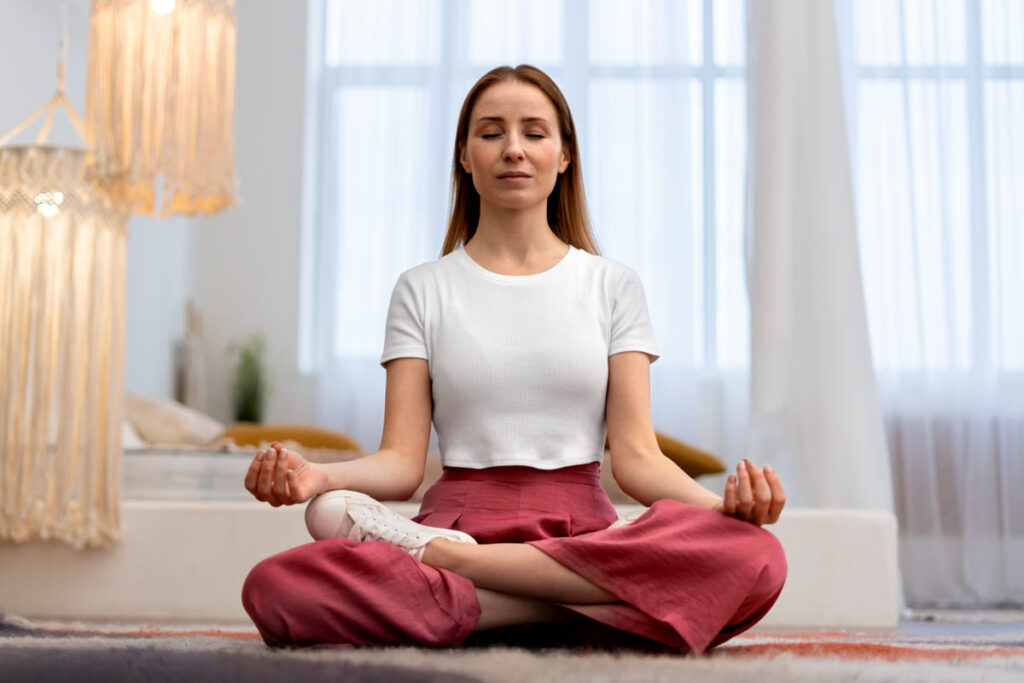9 Simple Habits Of People Who Know How To Ease Their Anxious Thoughts For Everyday Calm And Clarity
Ever notice how your mind can feel crowded with anxious thoughts, especially on busy days? For many, anxiety is a constant companion, but there are folks who have found easy ways to keep it from taking over.
You do not need a complicated plan to find some relief. A few simple habits can help you feel less stressed and more clear-headed.
Practice mindfulness meditation daily

Spending a few quiet minutes each day focusing on your breath can make a real difference. Mindfulness meditation lets you notice your thoughts without getting tangled up in them.
Even five minutes is enough to start. With regular practice, your mind learns to stay in the present instead of racing ahead.
Find a comfortable spot, close your eyes, and pay attention to your breathing. If your mind wanders, gently bring it back.
Over time, this habit can help you handle anxious thoughts with more ease.
Treat anxious thoughts like possibilities, not facts

When anxiety hits, your mind might jump to the worst-case scenario. It is tempting to believe these worries are true, but anxious thoughts are just possibilities.
Pause and ask yourself if there is real proof for your fears. Sometimes, you will see that your mind is just spinning stories.
Accept that your thoughts might be exaggerated. This makes it easier to step back and see things more clearly.
You do not have to act on every anxious idea. Giving yourself this space can help you stay calm.
Engage in regular physical exercise

Moving your body is one of the fastest ways to calm anxious thoughts. Exercise releases hormones that boost your mood and reduce stress.
You do not need intense workouts. Walking, stretching, or a bit of dancing counts too.
Find activities you actually enjoy. The goal is to make movement a regular part of your routine.
Staying active can help clear your mind and make anxiety feel more manageable.
Limit caffeine and sugar intake

Caffeine can make your heart race and leave you feeling jittery. Cutting back slowly can help avoid headaches or fatigue.
Sugary foods and drinks can cause energy crashes that make anxiety worse. Keeping an eye on your sugar intake helps your mood stay steady.
You do not have to quit caffeine or sugar completely. Try reducing them a little at a time and reach for healthier options when you can.
Use deep breathing techniques when stressed

Deep breathing is a simple way to calm your mind and body. It slows your heart rate and eases muscle tension.
Breathe in slowly through your nose for four seconds, hold for a moment, then breathe out gently through your mouth. Focus on how your chest and belly move.
You can use deep breathing anywhere, whether you are at home or out in public. It is a tool you always have with you.
Practicing deep breathing regularly helps your body relax faster when anxiety shows up.
Keep a gratitude journal

Writing down a few things you are thankful for each day can help ease anxious thoughts. These can be small moments, like a smile from a stranger or a good cup of coffee.
Focusing on what you appreciate shifts your mind away from worries. Over time, you build a list of positive memories to look back on.
You do not need to write much. Just a few lines every day is enough to start seeing the benefits.
Set small, manageable goals

Big goals can feel overwhelming when you are anxious. Breaking them into small, manageable steps makes things much easier.
Focus on one simple task at a time. For example, tidy one room instead of the whole house.
Achieving small goals gives you a sense of accomplishment. These wins help build your confidence and reduce anxiety.
Start with a mini habit that only takes a few minutes. Consistency is more important than size.
Spend time in nature regularly

Getting outside can help quiet anxious thoughts. Natural settings give your mind a break from daily worries.
Even a short walk in a park or sitting near some trees can lift your mood. Fresh air and sunlight offer a calm space to recharge.
Nature does not have to mean a big adventure. A balcony, garden, or even a patch of sunlight can help.
Making time for the outdoors can improve your focus, boost your energy, and help you find a little more peace each day.
Connect with supportive friends or family

When anxious thoughts start to pile up, it can feel overwhelming to handle everything on your own. Reaching out to supportive friends or family can ease some of that stress and help you feel understood.
Spending time with people who genuinely listen gives you a safe space to talk about what’s on your mind. Even just knowing someone cares can make your worries feel lighter.
Your support network doesn’t have to be big. A few close people who offer encouragement and patience can make a real difference.
Try to connect regularly, even if it’s just a quick call or a simple message. These small check-ins remind you that you’re not alone.







